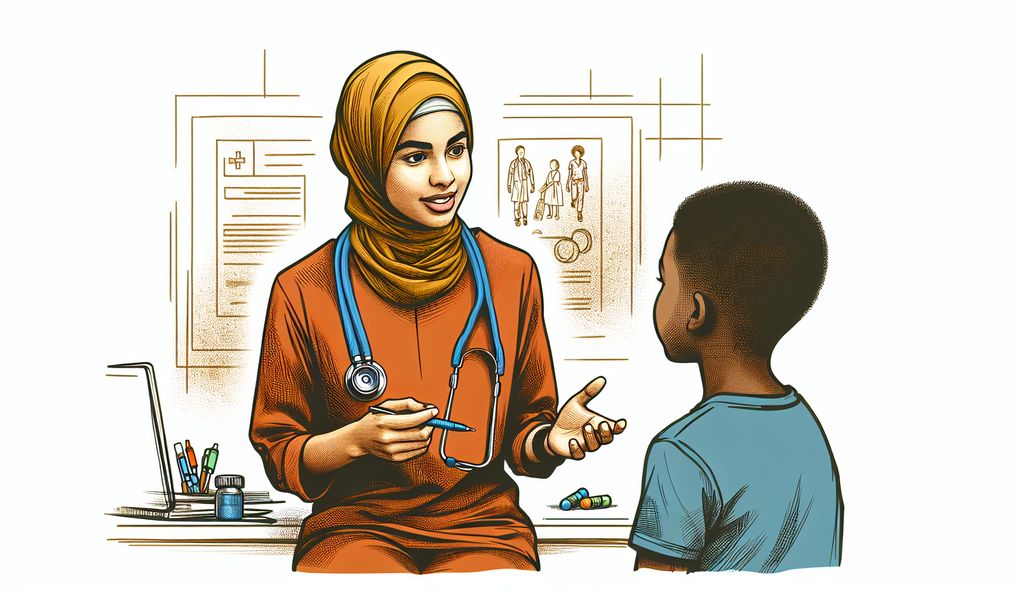How do you handle conflicts within a healthcare team?
INTERMEDIATE LEVEL

Sample answer to the question:
When conflicts arise within a healthcare team, I believe it's important to prioritize effective communication and collaboration. I would start by actively listening to all parties involved and trying to understand their perspectives. Then, I would encourage open dialogue and create a safe space for everyone to voice their concerns and ideas. In order to find a resolution, I would suggest brainstorming together and finding a compromise that benefits both the team and the patient. Additionally, I would be open to seeking guidance from more experienced team members or involving a supervisor if necessary. Overall, I believe that fostering a positive and respectful team dynamic is crucial for effectively handling conflicts.
Here is a more solid answer:
In my experience, conflicts within a healthcare team can arise due to differences in opinion, personality clashes, or high-stress situations. To effectively handle conflicts, I prioritize open and honest communication. I believe in actively listening to all team members involved and validating their perspectives. By encouraging teamwork, I emphasize the importance of collaboration and respect. When conflicts arise, I aim to address them promptly and privately, allowing each team member to express their concerns. I use my strong emotional intelligence and empathy to understand the underlying emotions and motivations behind the conflict. In finding a resolution, I propose brainstorming sessions where we can openly discuss various ideas and perspectives. I believe that involving the entire team in the decision-making process not only encourages buy-in but also fosters a sense of ownership and accountability. Ultimately, my goal is to create an atmosphere of trust and respect within the healthcare team, as this promotes effective conflict resolution and enhances patient care.
Why is this a more solid answer?
The solid answer provides more specific details on how the candidate handles conflicts within a healthcare team. It demonstrates their ability to actively listen, validate perspectives, and promote collaboration. The answer also showcases their emotional intelligence and empathy, which are important qualities for addressing conflicts in a high-stress healthcare environment. However, the answer could still be improved by providing a concrete example of a conflict that the candidate successfully resolved.
An example of a exceptional answer:
Conflicts within a healthcare team can be challenging, but I have developed effective strategies to address them. In a recent situation, there was a difference of opinion between two team members regarding the best course of treatment for a pediatric oncology patient. As a pediatric oncology nurse practitioner, I recognized the importance of finding a resolution that prioritized the well-being of the patient. To address the conflict, I facilitated a meeting where both team members could express their concerns and perspectives. I ensured that the conversation remained respectful and focused on the best interest of the patient. By actively listening and validating their viewpoints, I created an environment of open communication and collaboration. Together, we analyzed the available information, reviewed current research, and consulted with the pediatric oncologist. Through this collaborative process, we reached a consensus on the treatment plan that incorporated the expertise and insights of both team members. The resolution not only improved the quality of care for the patient but also strengthened the working relationships within the team. I believe that effective conflict resolution in healthcare teams requires empathy, active listening, collaboration, and a focus on patient-centered care.
Why is this an exceptional answer?
The exceptional answer provides a specific example of a conflict the candidate faced within a healthcare team and how they effectively resolved it. The answer demonstrates their ability to facilitate open communication, validate viewpoints, and prioritize patient-centered care. By incorporating details of the collaborative process, the candidate showcases their ability to use evidence-based approaches to conflict resolution. This answer goes above and beyond by providing a concrete example of how the candidate applied their skills in a real-life situation.
How to prepare for this question:
- Reflect on past experiences: Think about conflicts that have arisen in previous healthcare team settings and how you handled them. Be prepared to discuss specific examples and the outcomes of those conflicts.
- Highlight teamwork and collaboration skills: Conflict resolution in healthcare teams often requires strong teamwork and collaboration. Prepare examples that showcase your ability to work effectively with others.
- Emphasize patient-centered care: In healthcare, conflicts need to be resolved in a way that ensures the best outcomes for patients. Be ready to discuss how you prioritize patient-centered care in conflict situations.
- Stay updated on developments in the field: Conflict resolution strategies may evolve over time. Stay informed about current best practices in healthcare team communication and conflict resolution.
- Practice active listening and empathy: These skills are essential for effective conflict resolution. Practice active listening techniques and consider how you can demonstrate empathy during conflicts.
What are interviewers evaluating with this question?
- Communication and interpersonal skills
- Ability to work effectively in a team
- Empathy and compassion

